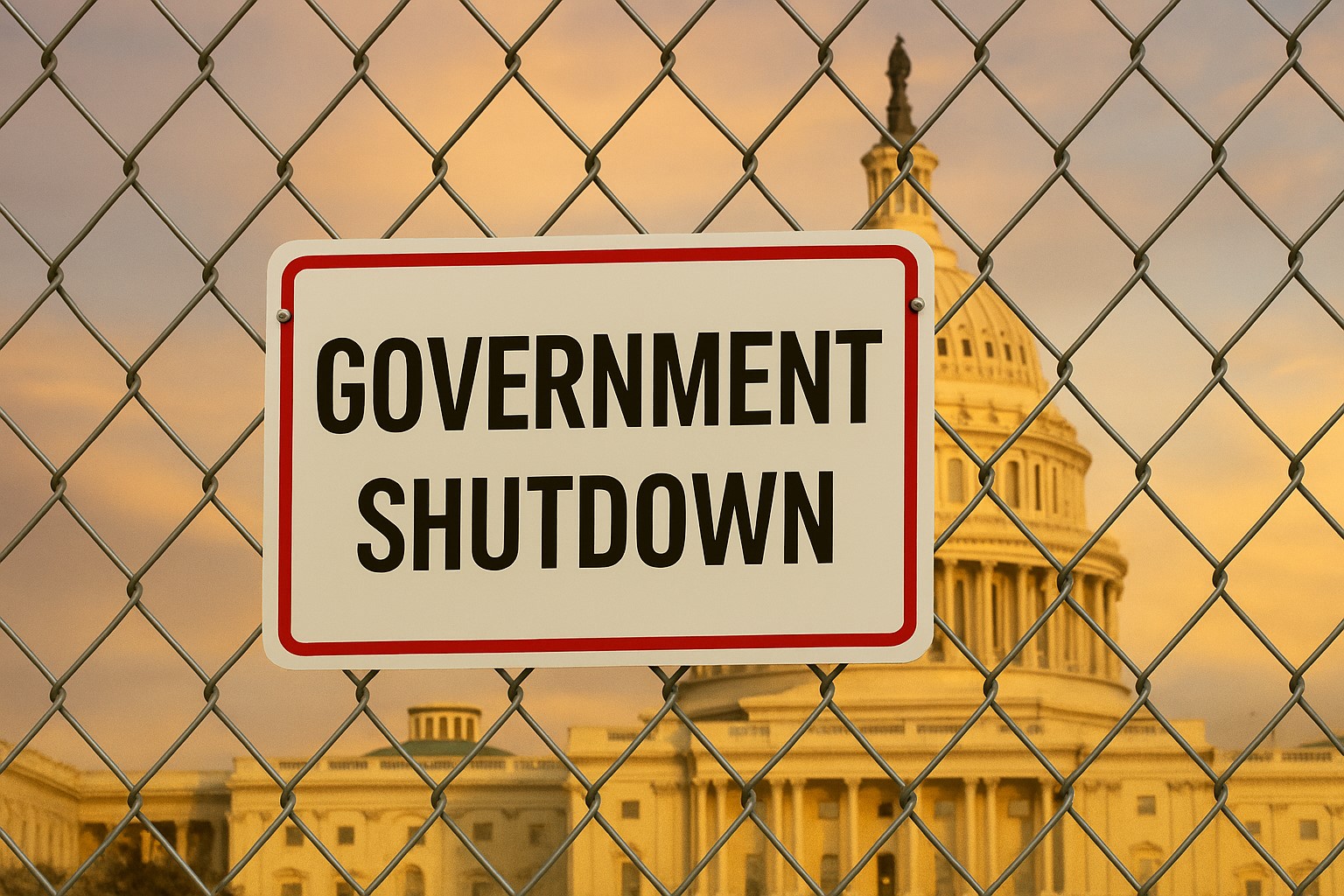Government Shutdown – Key Financial Impacts
Presented by Marc Aarons
I hope you’re doing well. With the federal government now in a partial shutdown, I wanted to provide an overview of what’s happening and what financial impacts Americans may experience.
What is a government shutdown?
A government shutdown occurs when Congress fails to pass the necessary funding legislation to keep federal agencies fully operational. In a partial shutdown like the one we’re in now, some agencies remain funded and continue running while many “non-essential” services pause until a funding agreement is reached.
When will the government reopen?
Unfortunately, there’s no set timeline. A shutdown can last a few days or extend several weeks, depending on how quickly lawmakers reach a compromise. In the meantime, some federal services may experience delays or limited availability.
What financial impacts could Americans experience?
- Essential financial benefits will continue: The good news is that many core federal services remain operational. Social Security, Medicare, and Medicaid benefits will continue to be distributed. Veterans’ benefits will also remain in place. The Supplemental Nutrition Assistance Program (SNAP) and the Special Supplemental Nutrition Program for Women, Infants, and Children (WIC) will continue as funds allow. Most IRS operations, including tax filings and refunds, are expected to proceed as well.
- Delays are likely in some government services: Depending on the duration of the shutdown, the delivery of some government services may be delayed. These can include federal housing loan approvals through the Federal Housing Administration (FHA), the Department of Housing and Urban Development (HUD), and the United States Department of Agriculture (USDA). The processing and approving of new SBA 7(a) and CDC/504 loans are paused. Key federal data reports — such as those related to employment or inflation — could be postponed.
- Federal employees may be affected: Many federal employees are currently furloughed or working without pay. While back pay is typically issued once funding is restored, the uncertainty and disruption can be difficult for those impacted.
- Broader economic impact is possible: Short-term government shutdowns have historically had a limited impact on financial markets. However, a prolonged disruption can affect consumer confidence, delay economic data reports, and impact federally supported programs. Depending on shutdown length, this could be especially significant for the Federal Reserve, which meets at the end of October and relies on jobs and inflation reports to guide decisions on interest rates.
While these factors are unlikely to require immediate changes to most financial plans, it can be helpful for Americans to have this broader economic context.
If you have questions about how this may affect your financial plans or simply want to talk through your investment strategy, please don’t hesitate to reach out. I am always here as a resource for you.
Please don’t hesitate to reach out with any questions or concerns.
Marc Aarons may be reached at 714-887-8000 or Email Marc
Investment advisory and financial planning services are provided by Money Managers, Inc. a registered investment advisor. Our CRD Number is 151602. To access our most recent version of our Form ADV, Form ADV Part 2A and privacy policy, visit https://adviserinfo.sec.gov/. This information is for educational purposes only. Information presented is for educational purposes only and does not intend to make an offer or solicitation for the sale or purchase of any securities, and past performance is not indicative of future results. Investments involve risk and are not guaranteed. Be sure to first consult with a qualified financial adviser and/or tax professional before implementing any strategy discussed here.

Comments are closed